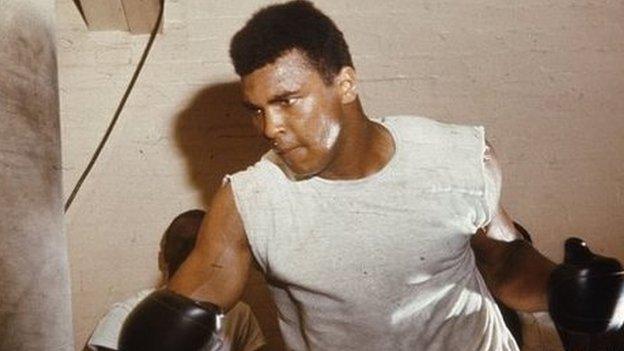Muhammad Ali was unique, say global media
- Published
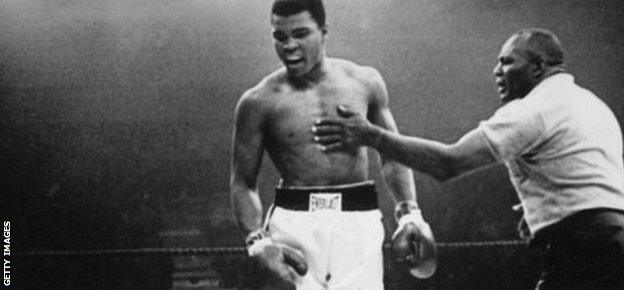
There is no holding back on descriptions of uniqueness in tributes to Muhammad Ali in global media.
From Afghanistan to the Philippines and beyond, his memorable phrases, his putative skills in the ring and his stand on civil rights are being recounted as a story that transcended the US sports arena to the international political scene.
Media have also gone to town with the publication of archive pictures and videos of his high-profile travels.
"When Madras had Muhammad Ali in its corner" says a headline in the Hindu newspaper website, based in Chennai, formerly known as Madras. Crowds thronged Chennai's Nehru stadium to witness the legend in action in a match against Jimmy Ellis in January 1980.
Uzbekistan's online news agency uz24 carries a photo of him visiting in June 1978 when the country was part of the Soviet Union. He had been invited by the Soviet government and then "decided to go to Uzbekistan to get to know the USSR's eastern cities as he was a Muslim", the report says.
The article also reported his display of humour at Tashkent airport when he was met by Uzbek boxer Rufat Riskiyev, who was the middleweight winner of World Amateur Championship in 1974. When asked whether he knew Mr Riskiyev, Muhammad Ali replied: "No, I do not know amateurs".
Chinese media highlight his civil rights activism and his refusal to be drafted for the Vietnam war. And the Hong Kong-based South China Morning Post says Muhammad Ali met Chinese leader Deng Xiaoping in 1979, reviving interest in boxing on the mainland.
Icon for Muslims
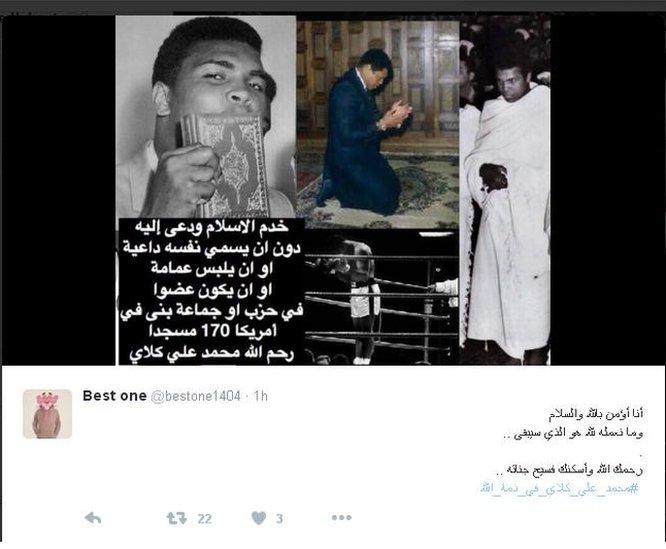
Arabic twitter users have posted images of Muhammad Ali practising the faith.
Photos showing him praying or holding the Koran have been shared extensively with Arabic hashtags such as #Muhammad_Ali_Clay and #Muhammad_Ali_Clay_passes_away, generating more than 120,000 tweets only a few hours after his death was announced.
User @3mmaar1 says: "The universal love of this legendary champion comes from his humanitarian beliefs and his heroic stances, external".
Iran's broadcast media and state news agency, IRNA, repeat reports that he had criticised Donald Trump's "policy towards Muslims" - referring to Mr Trump's call to ban Muslims from entering the US.
State TV said Muhammad Ali "fought against racism for years". He had visited Iran and his death "is a tragedy for the UN," the report said.
Egyptian state TV said says simply that Muhammad Ali was "the most famous boxer in the world".
Iraq's private Al-Mada News website describes him as "the spiritual leader of millions of black Americans and a symbol for hope, dignity and challenge," while pan Arab TV channels Al-Arabiya and Al-Jazeera retell his history as "a champion" of people and in the ring.
Russia's official Rossiya 1 channel notes that the boxer was "not only legendary but also a controversial figure" and "one of the most unconventional characters in the whole of the 20th Century".
His death is the lead story on most Russian broadcast sources on Saturday, and it is also trending on Twitter in Russia, with media outlets, prominent figures as well as ordinary users re-posting news reports about Ali's death with captions like "legendary boxer", "king of the boxing ring", "the greatest boxer of all time".
Nikolai Valuev, a former professional boxer and two-time WBA heavyweight champion, who is now a member of the Russian parliament, says: "Muhammad Ali was, is and will remain an idol and a hero for the whole boxing world... There are plenty of great boxers but few have made such a mark."
The story is splashed over many front pages of online media in the Philippines. Some world leaders, such as Indian Prime Minister Narendra Modi have taken to Twitter to pay tribute to Muhammad Ali. Afghan President Ashraf Ghani praises "the greatest man and champion of all times". Malaysian PM Najib Razak tweets: "The world lost more than just a legendary boxer. We lost the greatest of all time."
BBC Monitoring, external reports and analyses news from TV, radio, web and print media around the world. You can follow BBC Monitoring on Twitter , externaland Facebook, external.
- Published4 June 2016
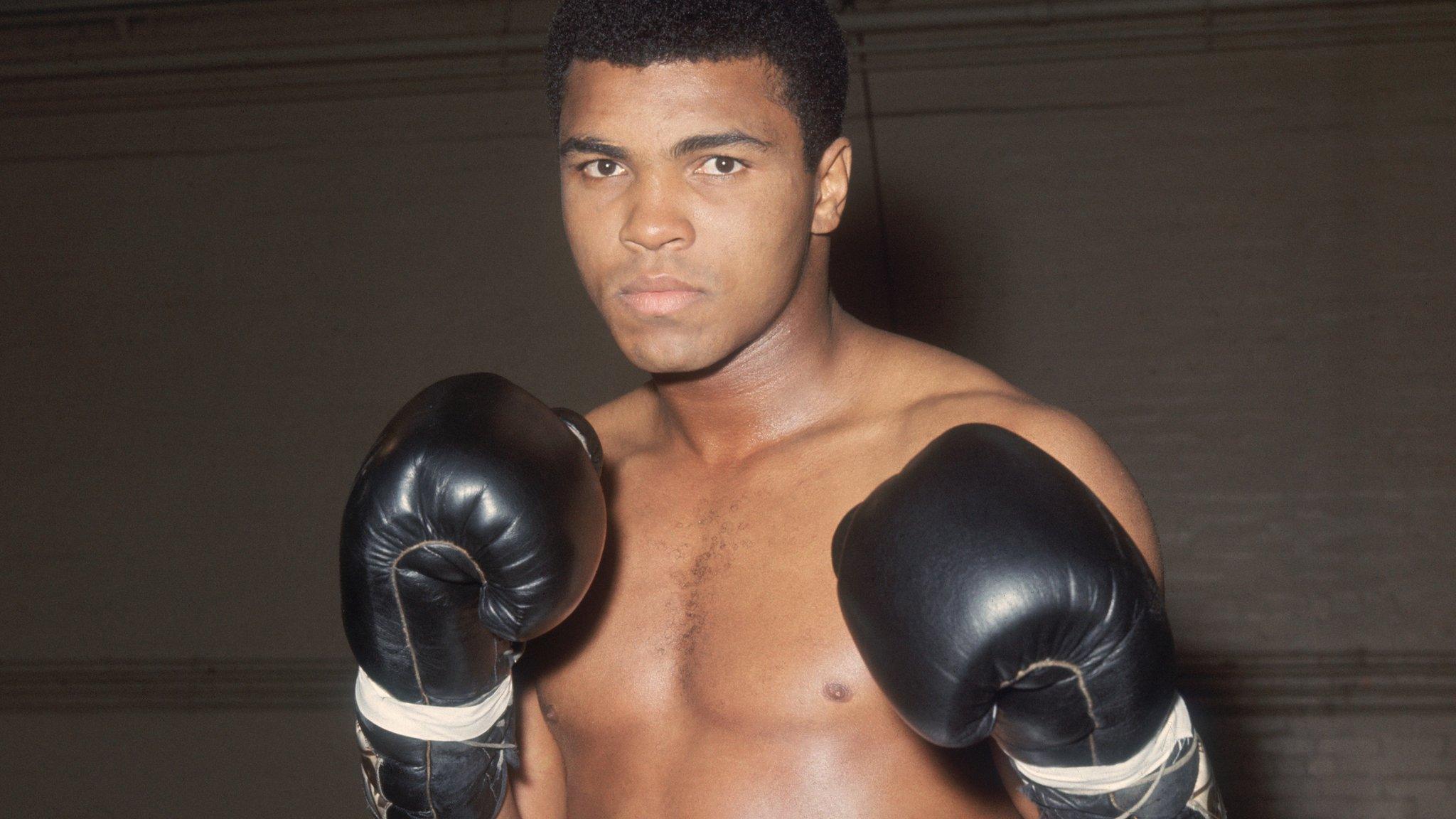
- Published4 June 2016
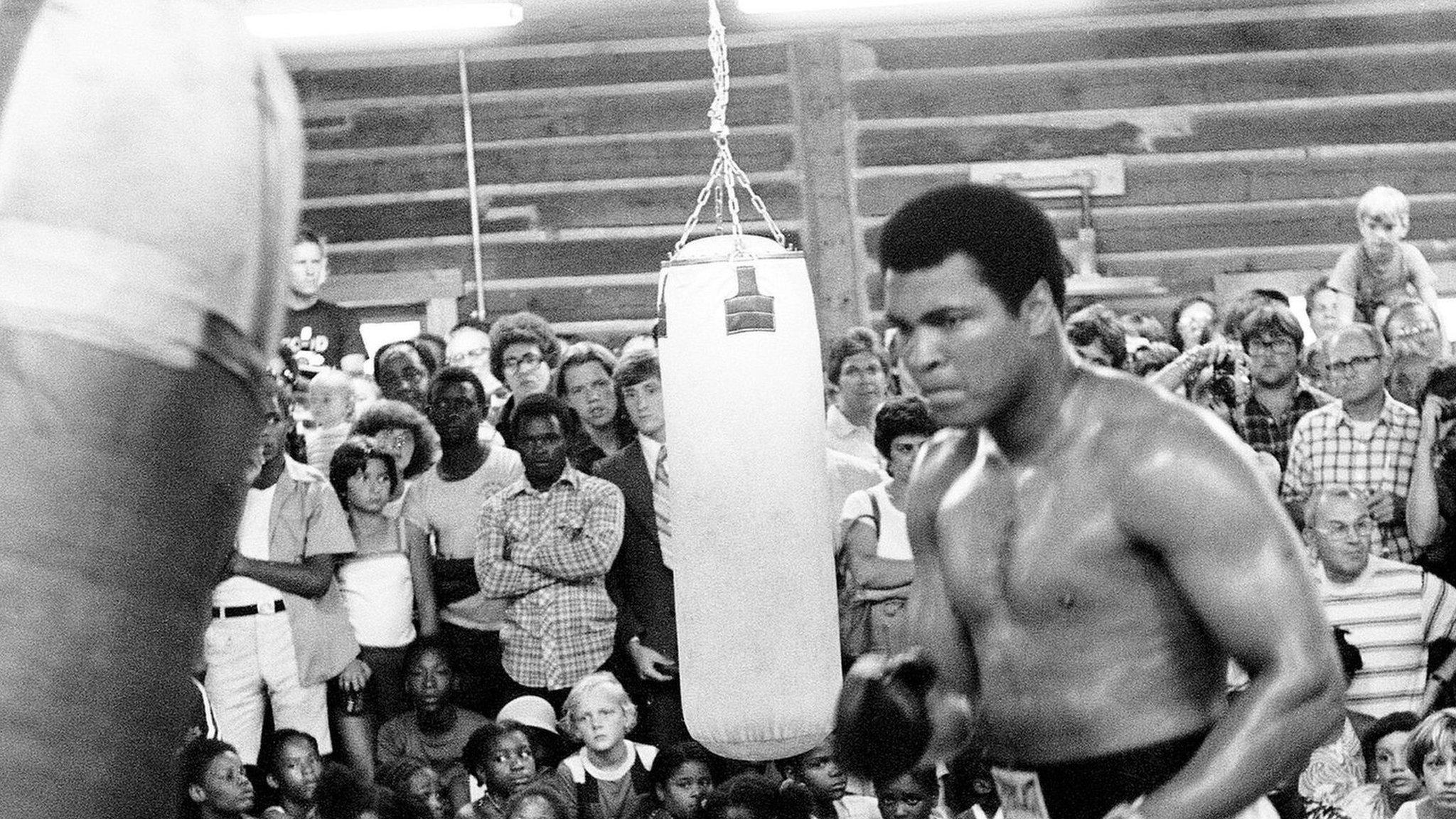
- Published4 June 2016
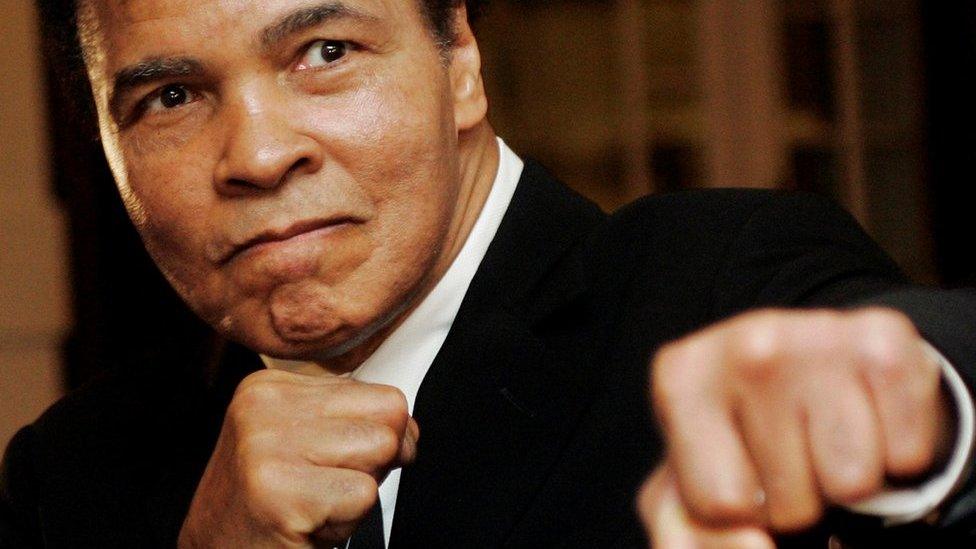
- Attribution
- Published4 June 2016
